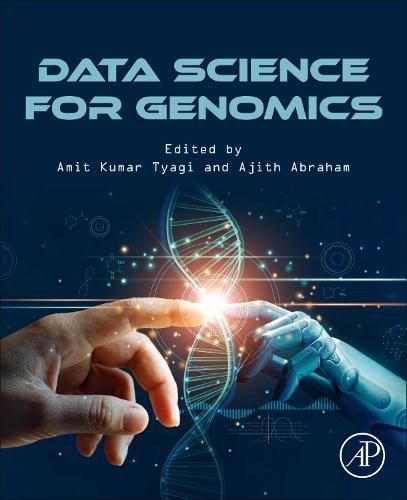Readings Newsletter
Become a Readings Member to make your shopping experience even easier.
Sign in or sign up for free!
You’re not far away from qualifying for FREE standard shipping within Australia
You’ve qualified for FREE standard shipping within Australia
The cart is loading…






Data Science for Genomics presents the foundational concepts of data science as they pertain to genomics, encompassing the process of inspecting, cleaning, transforming, and modeling data with the goal of discovering useful information, suggesting conclusions and supporting decision-making. Sections cover Data Science, Machine Learning, Deep Learning, data analysis, and visualization techniques. The authors then present the fundamentals of Genomics, Genetics, Transcriptomes and Proteomes as basic concepts of molecular biology, along with DNA and key features of the human genome, as well as the genomes of eukaryotes and prokaryotes.
Techniques that are more specifically used for studying genomes are then described in the order in which they are used in a genome project, including methods for constructing genetic and physical maps. DNA sequencing methodology and the strategies used to assemble a contiguous genome sequence and methods for identifying genes in a genome sequence and determining the functions of those genes in the cell. Readers will learn how the information contained in the genome is released and made available to the cell, as well as methods centered on cloning and PCR.
$9.00 standard shipping within Australia
FREE standard shipping within Australia for orders over $100.00
Express & International shipping calculated at checkout
Data Science for Genomics presents the foundational concepts of data science as they pertain to genomics, encompassing the process of inspecting, cleaning, transforming, and modeling data with the goal of discovering useful information, suggesting conclusions and supporting decision-making. Sections cover Data Science, Machine Learning, Deep Learning, data analysis, and visualization techniques. The authors then present the fundamentals of Genomics, Genetics, Transcriptomes and Proteomes as basic concepts of molecular biology, along with DNA and key features of the human genome, as well as the genomes of eukaryotes and prokaryotes.
Techniques that are more specifically used for studying genomes are then described in the order in which they are used in a genome project, including methods for constructing genetic and physical maps. DNA sequencing methodology and the strategies used to assemble a contiguous genome sequence and methods for identifying genes in a genome sequence and determining the functions of those genes in the cell. Readers will learn how the information contained in the genome is released and made available to the cell, as well as methods centered on cloning and PCR.